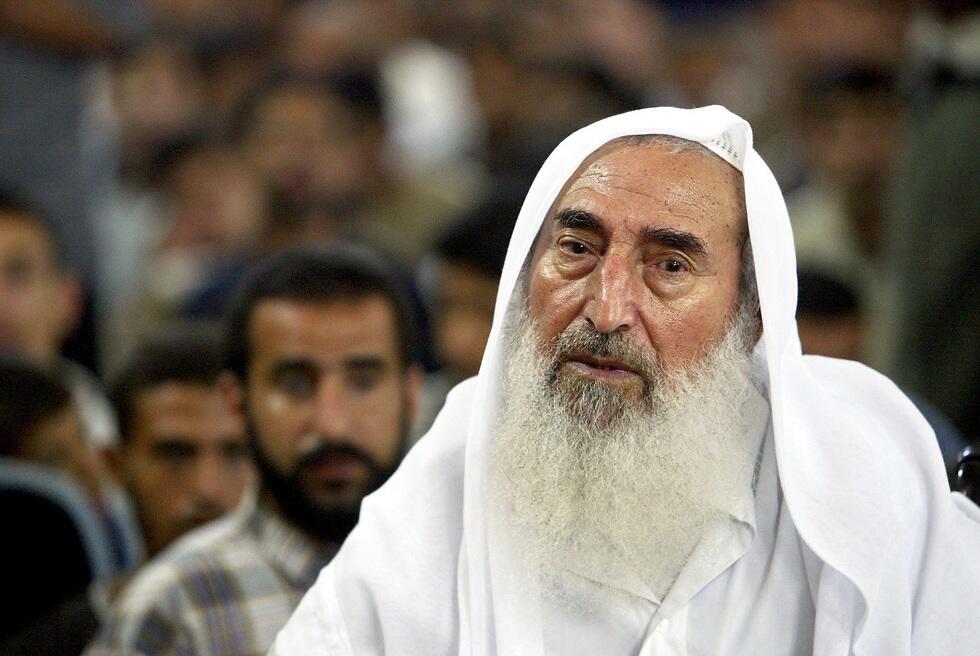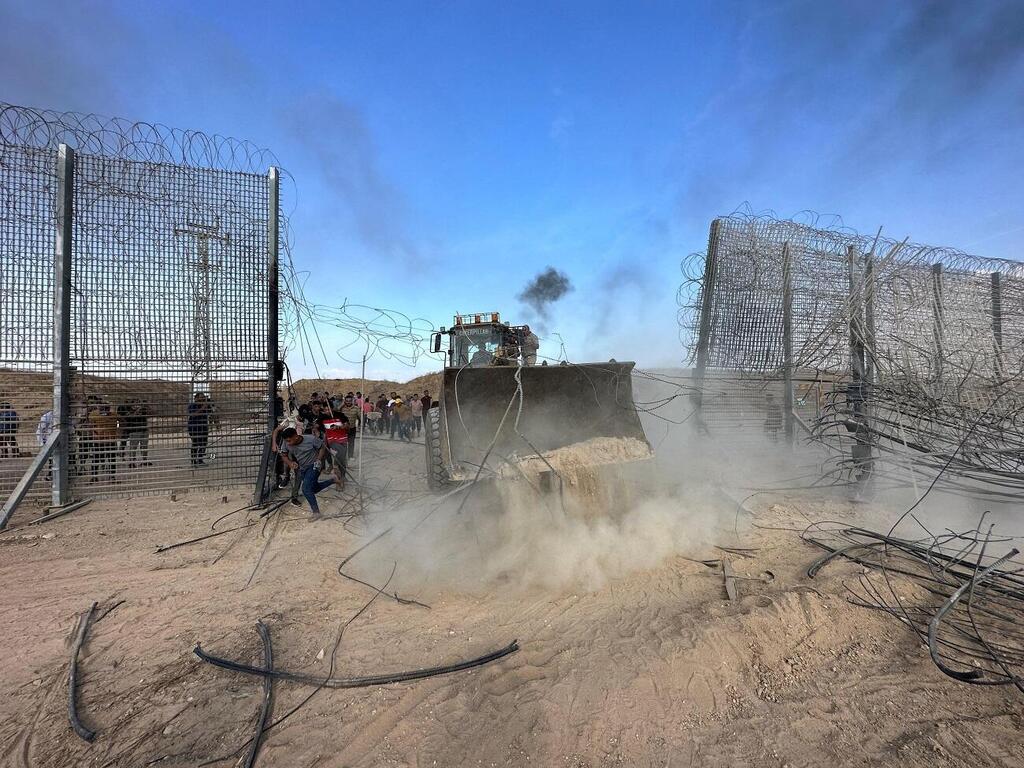Getting your Trinity Audio player ready...
Israel has now been fighting Hamas and other terrorists in Gaza for more than five months since October 7. This is a very long time compared to the country’s previous wars, against stronger enemies and it's important it ends before the U.S. elections in November.
More stories:
The Sinai campaign of 1956 against Egypt lasted eight days. The Six-Day War of 1967 against a coalition of Egypt, Jordan and Syria, was even shorter. The bitter Yom Kippur War of 1973 to defeat simultaneous Egyptian and Syrian offensives, which cost Israel 2,689 lives, took only 19 days. The current war will soon have lasted more than five times longer than all these three wars, put together. Yet, Israeli victory is neither imminent nor certain.
8 View gallery
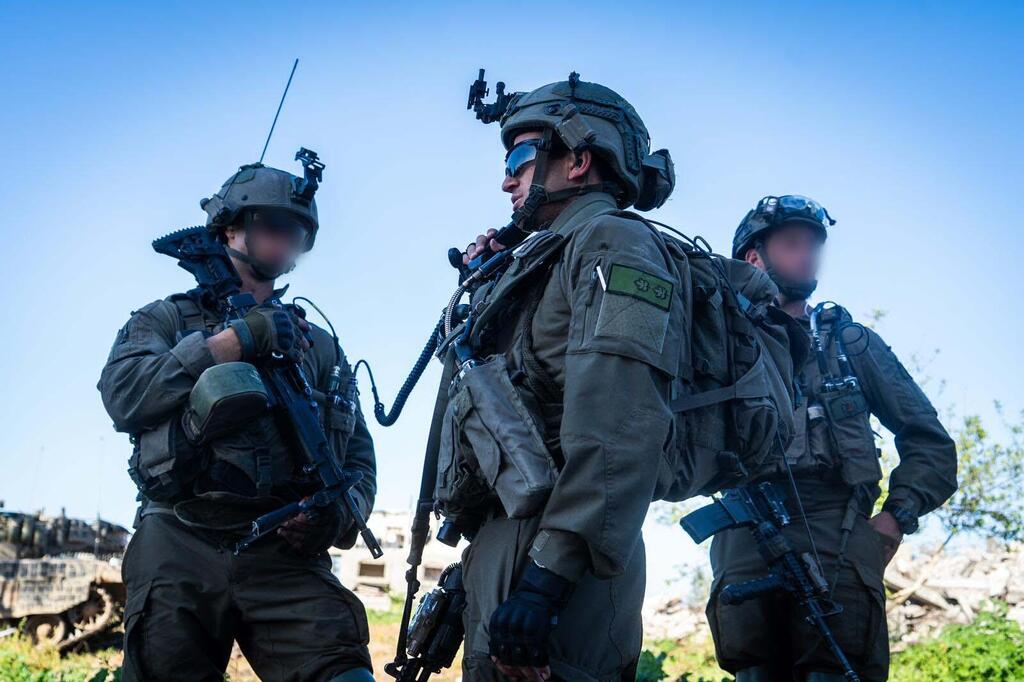

IDF has been operating in Gaza for almost five months
(Photo: IDF Spokesperson's Unit)
Israel has not resolved to gain decisive victory
The operations in Gaza are difficult because the terrorists hide in a dense urban area and have constructed a huge spider web of underground tunnels. Nonetheless, this is not the reason why the war continues. Rather, the essential problem is Israel’s lack of resolve. It is this which led to the creation and growth of Hamas in the first place, and it has lasted forty years.
In 1984, Israel arrested Ahmed Yassin, founder of the Islamist organization in Gaza, for nothing less than possessing weapons and seeking to destroy Israel. In May 1985, Yassin was released in the infamous Jibril deal, in which Israel paid for the return of just three Israeli prisoners of war by releasing 1,150 terrorists.
Slightly more than two years later, Yassin and others founded Hamas. This set the pattern for decades; of insufficient military pressure, obscene exchange agreements and the continuous strengthening of Israel’s mortal enemies in Gaza.
Winston Churchill derided a similar pattern of British behavior in the face of growing Nazi aggression as follows in November 1936: “So they go on in strange paradox, decided only to be undecided, resolved to be irresolute, adamant for drift, solid for fluidity, all powerful to be impotent.”
As with the collapse of the Allied armies in France in 1940, so with the attack on Israel on October 7, the consequences, which should always have been obvious, have finally become indisputable. Yet, Israel persists in its resolve to be irresolute. Even though, as Ben-Dror Yemini rightly asserts, “it is not only Israel’s right to defeat Hamas. It is her duty.” It should be added that no country and no force other than Israel will perform this task.
America is not Israel’s savior. Israel must save itself
Israel’s irresolution is anchored on a misunderstanding of the role of American assistance. It is not true, as Yemini claimed, that Israel needed weapons “on a scale much larger than that of the Yom Kippur War”. A sober look at histories of the war, including Yitzhak Steigman’s recent and very thorough official history of the Israel Air Force in that war, “We Must Keep on Playing”, shows this is definitely untrue.
The American airlift, Operation Nickel Grass, included the supply of dozens of combat aircraft, artillery pieces and other heavy equipment to Israel. During the present war, the IDF has definitely not received any aircraft from the U.S., and there is no reason to believe that it has received any artillery pieces.
It is necessary to see events in their proper proportion. In 1973, Israel was fighting two large Soviet-armed conventional armies which also received additional supplies, in the form of 935 sorties flown by Soviet transport aircraft during the war. Now, Israel is fighting a terrorist infantry force. This would have been obliterated by now, if it was not hiding in its tunnels and if Israel had not contrived to keep the Philadelphi corridor on the Egyptian border open for the entire war thus far.
8 View gallery
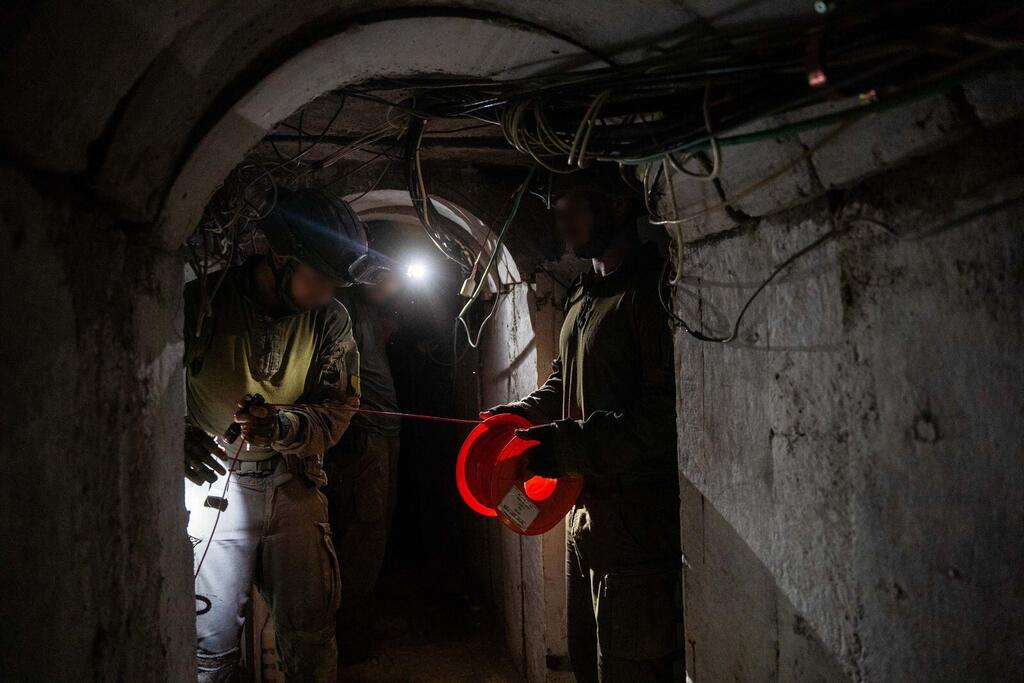

The war in Gaza forces the IDF to navigate through intricate tunnels
(Photo: IDF Spokesperson's Unit)
The way to victory is for the IDF to take physical possession of the entire territory of Gaza, just as the Allies in the Second World War took physical possession of the entire territory of the Axis powers. Only this method can and will permanently remove Hamas from power.
This is why Ron Ben-Yishai is wrong to emphasize that Hamas’ control of aid distribution in Rafah and Deir al-Balah keeps it in power in those towns. Such an approach puts the cart in front of the horse. Hamas controls the flow of aid because it retains the armed force needed to do so, not the other way around. Until and unless the IDF operates in these areas, nothing can or will change.
Israel needs not to compete for “valuable legitimacy points”, as Ben-Yishai proposes, but rather to obliterate Hamas, and present international public opinion with a fait accompli, thereby dispelling attempts to pressure Israel to end the war before victory. Neither in 1956, 1967 nor 1973 did Israel carefully monitor international criticism while fighting. It defeated its enemies on the battlefield, as rapidly as possible.
For the moment, Israel is fighting a larger and longer version of the Second Lebanon War of 2006. Then, a month of incoherent and indecisive Israeli operations in southern Lebanon finally exhausted the patience of the reliably pro-Israel President George W. Bush, who called for a “cessation of violence." Anyone who would like to see where that has led can refer to the northern border for a demonstration. If IDF operations continue to be as slow as they are currently, far worse will follow.
The nature of Hamas leaves Israel no alternative
Attempts to find an alternative to a decisive Israeli victory cannot lead anywhere. Yemini’s suggestion that Israel “declare a unilateral cease-fire on our terms” ignores the fact that Hamas will use any cease-fire to re-arm, recuperate and better hide the hostages it holds. A jihadist organization formally set to destroy Israel will not act in any other manner. This means that apart from some sort of temporary pause for a limited prisoner exchange, a cease-fire is a road to nowhere.
For as long as he has enough guns and enough acolytes willing to use them, Sinwar and any of his successors will adhere to the same methods and hold Gaza by the throat
As long as Hamas has sufficient men and weapons, it will continue to dominate the population of Gaza. Therefore, Avi Issacharoff's hopes that Yahya Sinwar will be threatened by calls for accountability from the populace are in vain. Sinwar is a vicious murderer who forced a supposed traitor to bury his own brother alive. For as long as he has enough guns and enough acolytes willing to use them, Sinwar and any of his successors will adhere to the same methods and hold Gaza by the throat.
Equally purposeless is Issacharoff’s suggestion that Fatah will inevitably come back to Gaza in some form. The author himself acknowledges that Fatah is not even capable of exercising control in Tulkarem and Jenin in Judea and Samaria, to speak nothing of Gaza. When Fatah did attempt to rule Gaza, this ended in 2007, with its members massacred and thrown off buildings.
It is impossible to tolerate a return of Fatah to Gaza not only because of its weakness, but also because of its racism. Just a few days ago, Fatah’s Prime Minister, Mohammad Shtayyeh, libeled Israel as a country that “deprives the Palestinian people of their right to life through killings and the committing of genocide”. Replacing one racist anti-Israel gang, Hamas, with another, Fatah, would constitute neither reasonable nor responsible policy.
The American crisis reflected in the State of Biden address
The slide toward irresolution and irresponsibility blights not only Israel, but also the United States. As NBC’s Peter Nicholas acknowledged, the core theme of President Joe Biden’s State of the Union address was that “the American president is fit.” Thus, the address was in essence intended to buttress the State of Biden, and was not particularly closely connected to the Union that he is meant to lead.
Even as Biden’s physical fitness is held to have been demonstrated by his performance, his moral fitness is no better than it was. Rick Klein’s friendly analysis of the address for ABC could not avoid the fact that Biden “referred to his predecessor at least 16 times, although not by name”. This constitutes a most unpleasant parallel with Putin, who refused to name his now-dead and presumably murdered political opponent, Alexei Navalny. Biden is not a murderous dictator, but he is not behaving in a manner befitting of a democratic leader.
Biden’s behavior is not accidental but forms a central part of America’s societal crisis. Comity and unity are long gone. As Tal Axelrod put it, Biden had been “leaving behind a hallmark of bipartisanship” which the ABC correspondent suggested had been part of the politician’s past reputation. In fact, Biden has not had a positive net approval rating, nor any sort of bipartisan support, since August 2021. His current net approval rating is around -17%, a woeful result for a man seeking re-election.
8 View gallery
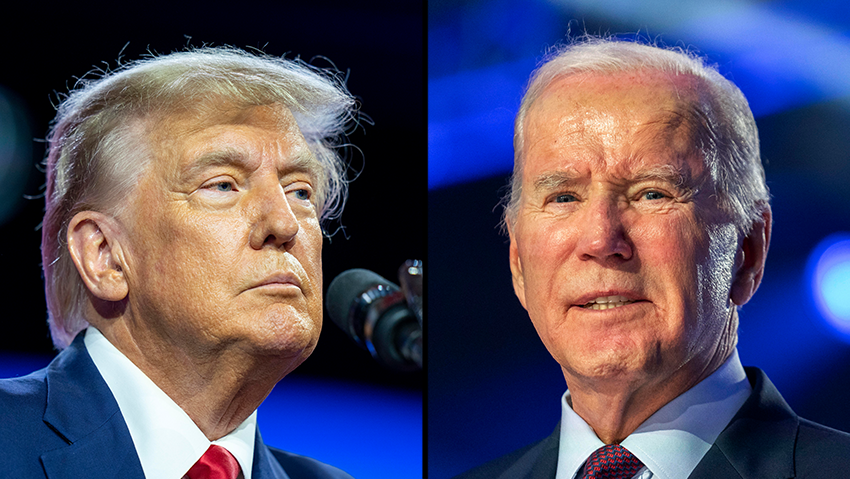

Both candidates unprecedently unpopular in U.S.
(Photo: Alex Brandon/AP, Stephanie Scarbrough/AP)
Instead of bipartisanship, America is displaying an abiding disgust with its two dominant political figures. Donald Trump has, incredibly, never had a positive net approval rating, with occasional outlier polling results being expected.
Unless Trump is taken out of contention by court proceedings or health problems, the election of 2024 will be a contest between two of the most unpopular politicians in American history. Making the situation even worse is that Kamala Harris, Biden’s Vice President, has succeeded in being even less popular than either Biden or Trump.
Such leaders, bereft of enduring popular support, will not be able to sustain America’s previous success. It is questionable whether they will even be able to pass through the post-election period without mass disturbances initiated by whichever side loses the election.
In such unpleasant circumstances, Israel must win the war before November. The four years that will follow may be some of the worst in America’s long history, and especially because of this, Israel must not drag out the war beyond this autumn.
- Dan Zamansky is a British-Israeli independent historian and author of The New World Crisis, a Substack analysing the problems of today. His manuscript of this article may be found at Substack



